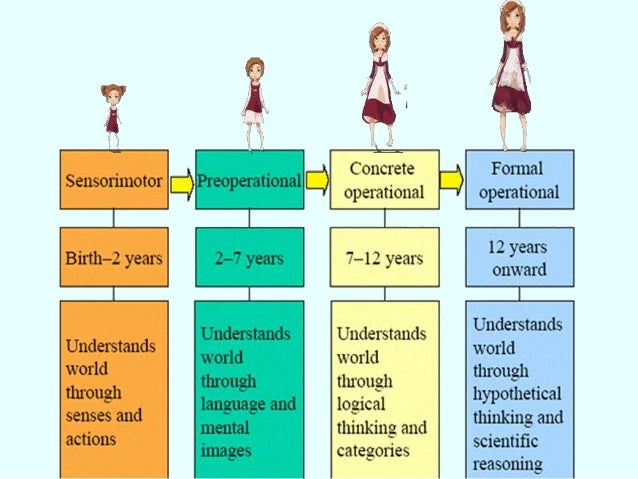What is Cognitive Development?
Holistic development includes all aspects of a person. Cognitive development is specifically the growth & change of a person’s mental processes. Cognition involves perception, memory, reasoning, reflection & insight, according to several child development experts.
Who was Jean Piaget?
A 19th century Swiss psychologist & educator, most known for his work in cognitive development, Piaget asked some of the same questions you may have about children in your context.
In fact, Piaget included his own children’s mental processes as part of his studies. He wondered how children’s minds develop & his research eventually lead to the discovery of four stages of cognitive development.
Stages of Cognitive Development
1. Sensory-motor (birth to age two)
During the sensory-motor stage, baby & toddler brains are focused on concrete (aka real) objects in the environment. For example, it is natural at this stage to find your child discovering the purpose of a spoon, the texture of a new rug, or learning to distinguish between “a dog” vs. “a truck.”
2. Pre-operational (2-7)
During the pre-operational stage, childrens’ minds are primarily learning about symbols in language & play. In fact, so much occurs during this stage that for the purposes of this site, we explore “three” phases of the pre-operational stage. Toddlers (age 2-3) first begin to recognize a picture (of a truck) can represent an actual object (truck outside). Next, preschoolers (3-5) begin to learn that words (“truck”) are made up of letters (t-r-u-c-k) & can represent images & real objects. In sleep & in play, they imagine a flying truck… a combination of a plane & a truck. Primary students (5-7) have become interested enough in symbols in language that they are ready to sit long enough to write a short word, sentence or story about a truck.
3. Concrete operational (7-11)
During the concrete operational stage, children’s brains are more easily able to classify objects, understand relationships & to reason. For example, they understand that their neighbor who drives a truck lives in a house, but the people in the photo at school walk to and from their mud hut. Similar to the pre-operational stage, this developmental stage covers several phases of learning. On this site, we have chosen primarily to discuss only the beginnings of this stage (age 7-8). Click the link below for further explanation of this decision, as well as an overview of this stage’s “phases.”
 4. Formal operational (11+)
4. Formal operational (11+)
During the formal operational stage, children are more easily able to make independent decisions based on their own ideas, as well as to understand other people’s thoughts. For example, they choose to watch a movie that they know mom would not like because their friend wants to & they are worried that their friend might not like them if they say no. This stage covers multiple phases beginning in middle school & on to high school & beyond. On this site, we have chosen primarily to discuss only the first three stages of development with the exception of a basic understanding of adult human development. Click the link below for further explanation of this decision, as well as an overview of this stage & its’ distinctions.
Chirp focuses primarily on the first 2 stages of cognitive development & the beginnings of the 3rd, highlighting learning phases within these early cognitive development stages as well as how they relate to early communication & literacy.
